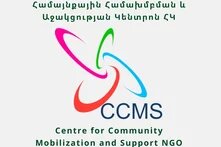The 2020 Nagorno-Karabakh war and the Russian full-scale invasion of Ukraine have dramatically changed the balance of power in the South Caucasus region and beyond. Over the last few years, Russia's influence in the region has declined. Azerbaijan has used this opportunity, supported by Turkey, to assert its interests in Nagorno-Karabakh and along the border with Armenia. The European Union also increased its efforts in the South Caucasus.

In light of these developments, the Georgian Institute of Politics (GIP) continues to implement a project aimed at analyzing the changing geopolitical landscape in the South Caucasus, including the role of regional and external actors. The project provides an opportunity for young researchers from each country of the South Caucasus to write policy briefs on geopolitical shifts in the region and participate in workshops and public discussions. As a result, the researchers will present policy papers at a final event and will have the possibility to engage with experts and policy makers. The long-term goal of the project is to contribute to develop informed foreign policies on all sides as well as to increase the quality of research and the debate on geopolitical changes among young researchers, expert communities, and policy makers.

